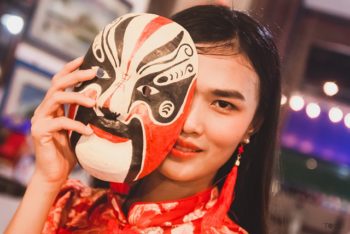The Spring Festival anxiety Posted by Ayana on Jan 10, 2022 in Holidays
Spring Festival celebrates the beginning of a new year on the traditional Chinese calendar. This year it will be celebrated on February 1st, 2022. It’s the most important Chinese holiday and it’s being celebrated with much excitement and festivities. A fifteen-day long holiday that will include a dinner feast, a family reunion, decorations, fireworks, red envelopes, and more.
But China’s largest celebration also brings some discomfort along with it. The spring festival travel rush is one of the most notorious inconveniences of the holiday. Expect an extremely high traffic load and greatly crowded transportation links with billions of passenger journeys during the 40 day period, making the travel uneasy. Sasha wrote a beautiful post about it, including his own experience.
The annual celebration also causes emotional pressure. As the family-focused holiday approaches, many youngsters, especially singles, suffer stress. It is called 春节焦虑症 (chūn jié jiāo lǜ zhèng, Spring Festival anxiety). Young people in their twenties and thirties from all over the country are feeling anxiety at the end of the year, and worried about going home for different reasons: the high travelling cost, the expense of giving presents, the questioning about their financial and love life. The Chinese parental-pressure on their children to marry and to find a steady job always exists, but it is intensified during the Spring Festival with the reunion and the influx of extra relatives to ask questions about their private lives.
As some netizens explain:
只要一提到回家我就非常焦虑。回家要面对家人的关心。对他们来说,我工作不好,钱挣得少,对象都找的不好。亲戚不断地问有对象没、工资多少、房子买了吗?人不行,干啥都不行,净给家里丢人。过年宁愿一个在出租屋吃泡面也不愿意回去。
Zhǐ yào yī tí dào huí jiā wǒ jiù fēi cháng jiāo lǜ. Huí jiā yào miàn duì jiā rén de guān xīn. Duì tā men lái shuō, wǒ gong zuò bù hǎo, qián zhēng dé shǎo, duì xiàng dōu zhǎo de bù hǎo. Qīn qī bù duàn de wèn yǒu duì xiàng méi, gong zī duō shǎo, fángzi mǎi le ma? Rén bù xíng, gàn shà dōu bù xíng, jìng gěi jiā lǐ diū rén. Guò nián nìng yuàn yī gè zài chū zū wū chī pào miàn yě bù yuan yì huí qù.
Just the mention of going home makes me very anxious. Going home means to face the concerns of the family. For them, my job is not good, the salary is low, my partners are not good. Relatives keep asking me if I have a partner, how much is my salary, and have I bought a house? I am not good, nothing I do is good, just a shame on the family. I’d rather eat instant noodles in a rental house than go back during Chinese New Year.
Geng Haiyang experiences similar feelings every year he returns home to celebrate the New Year. Shortly after the end of the 2021 Spring Festival, he publicly shared his autobiographical documentary Flight of the Honeybees. The film is an amazing peek to the rural Chinese lives and to Geng’s annual visits for the last decade, during which his aging parents continually exhort him to marriage. Watch the trailer:
China’s New Year Gala, the biggest TV event of the year, approaches the subject as well. The four-hour-long show reflects the Chinese authorities’ pro-marriage stance. Last year Gala, for example, performed a skit about a woman facing relentless pressure from her parents to get married. When she finally brings a boyfriend home for the holiday, her parents refuse to believe it, and accuse her of hiring a date for the festival, a business that emerged in recent years. The sketch, loyal to the social demand, ended with a marriage proposal.
Text vocabulary
春节 chūn jié = Spring Festival
焦虑 jiāolǜ = anxious
焦虑症 jiāo lǜ zhèng = anxiety
回家 huí jiā = return home
过年 guò nián = to celebrate the Spring Festival
家人 jiā rén = family member
亲戚 qīn qī = relative
丢人 diūrén = shame, to lose face
好好学习,天天向上!

Build vocabulary, practice pronunciation, and more with Transparent Language Online. Available anytime, anywhere, on any device.





Leave a comment: